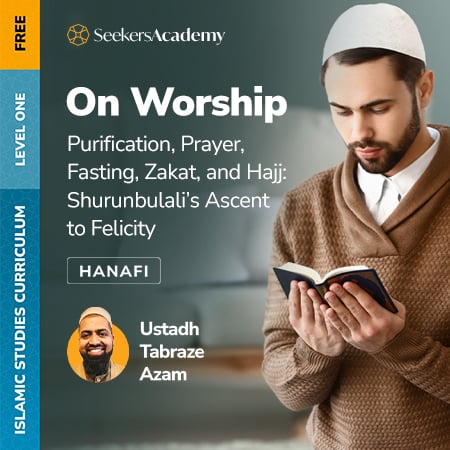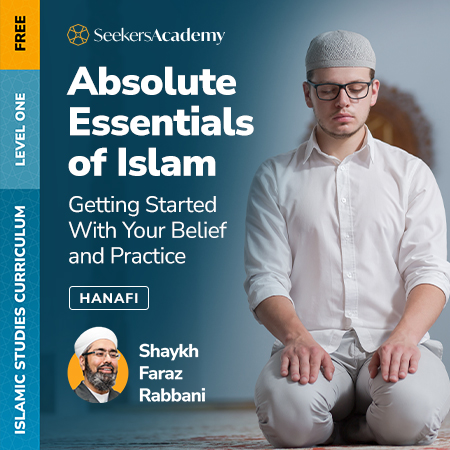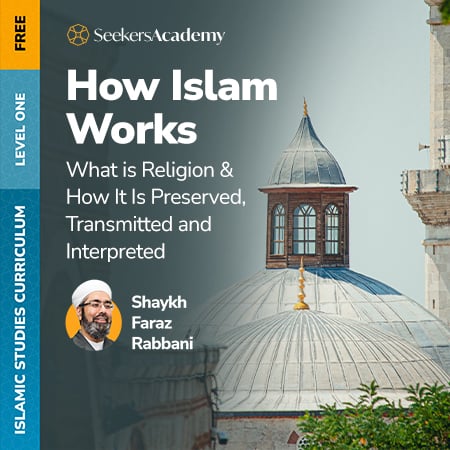
Allah Most High says, “I have not created jinn-kind nor mankind for any purpose other than to worship Me.” (Qur’an, 51:56) Take this course to get comprehensive and knowledge-based answers to all of the questions that you are likely to face in your worship
Allah Most High, all in light of a formal textbook of in Hanafi law that students like you have used for centuries. This course covers the detailed rules of Purification, Prayer, Fasting, Zakat, and Hajj. This course is taught according to the Hanafi school. If you would like to learn it according to the Shafi’i school, take this course instead.
- Teacher: Ustadh Tabraze Azam
- Teacher: Ustadh Sufyan Qufi
This course is an explanation of Ascent to Felicity (Maraqi al-Sa‘adat) a concise primer on the rules of worship, slaughtering, sacrifice, and hunting according to by a leading authority of the Hanafi school, Abul Ikhlas Hasan al-Shurunbulali (d. 1069 ).
The author is best known for his more detailed introduction to the rules of worship, Nur al-Idah, and its detailed commentary, Maraqi al-Falah, which are both an essential part of every traditional syllabus in Hanafi jurisprudence. Ustadh Tabaraze Azam comments on the back cover of the book’s translation that it is “an excellent primer in Islamic beliefs and worship. . . more useful as a first complete text for those seeking understanding of the fiqh of worship than the more commonly-studied Nur al-Idah.”
- The Absolute Essentials of Islam (Hanafi) course is a pre-requisite for this course
- Those who have taken The Absolute Essentials of Islam (Hanafi) course
- Any student who wants to take level two courses in Islamic Studies Curriculum
- Understand slavehood to Allah Most High and why it is important
- Learn the rules of purification and prayer that you are likely to encounter in your daily life
- Memorize the most important rules of wudu, ghusl, prayer, fasting, zakat, and Hajj
- Appreciate the rigour of the science of Sacred Law (fiqh)


